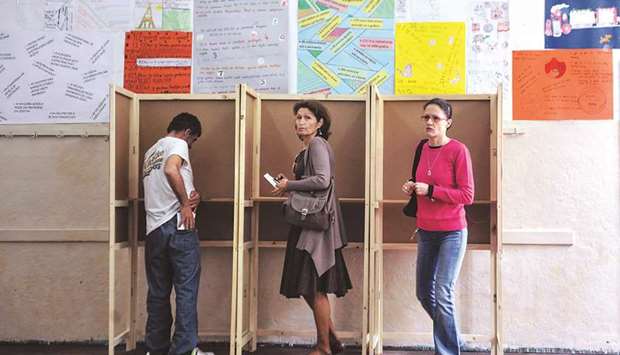Veteran pro-European Union politician Milo Djukanovic is set to win Montenegro’s presidential election yesterday with 54% of votes, according to a projection by the Centre for Monitoring and Research (CeMI) pollster.
Mladen Bojanic, a businessman backed by an alliance of parties, including some wanting closer ties with Russia, is set to come second with 33%, CeMI said, based on a partial count of the votes in a sample of polling stations.
Djukanovic and his ruling Democratic Party of Socialists (DPS) led Montenegro into the North Atlantic Treaty Organisation (Nato) last year and have pledged to complete talks for EU membership.
“There will be no second round,” Milos Nikolic, a DPS parliamentary deputy told reporters at the party’s headquarters. “Djukanovic is the new president of Montenegro.”
The state election commission said that turnout at 7.30pm (1730 GMT), half an hour before the polling stations closed, stood at 61.6%.
“This (result) is a serious indication of how final results might look, though results might deviate slightly,” said Milos Besic, an lecturer in political sciences at the Belgrade University who monitors Montenegro’s vote.
After casting his ballot, Djukanovic said he is convinced that he would win in the first round.
“I am convinced Montenegro will confirm its determination to continue on the path of European development,” Djukanovic said.
No significant election irregularities have been reported.
Although the presidential role is largely ceremonial, if Djukanovic wins and replaces his ally Filip Vujanovic, he is expected to wield considerable power and influence policy through the ranks of the DPS.
Having dominated politics in the tiny Adriatic country of only 620,000 and an ex-Yugoslav republic since 1991, either as prime minister or president, Djukanovic last stepped down as prime minister in 2016.
He announced his comeback last month citing “responsibility for Montenegro’s future”. During the campaign, opposition candidates accused Djukanovic of fostering cronyism, nepotism, corruption and ties with organised crime, which he denies.
The issue of organised crime has cast a shadow on the campaign, with some 20 people killed by assassinations in the street or car bombs over the last two years.
“As president, I will do everything in my power...
to give the police the authority that would allow them to protect citizens from those who put their lives in danger,” Djukanovic said during the campaign.
“I am proud of my result,” Bojanic told reporters after projections were released.
“I will continue the struggle to liberate Montenegro from Djukanovic’s dictatorship,” he said.
Earlier in the campaign he accused Djukanovic of being “the creator of the instability and chaos that we witness in the streets of Montenegro”.
“I agree with Djukanovic that the state is stronger than mafia.
But the problem is that I do not know which side he is on,” he added.
Djukanovic has claimed that the opposition want to turn the country into a “Russian province” and threaten Montenegro’s multicultural way of life.
With Montenegro’s average salary at around €500 ($615) and unemployment at over 20%, the debate over the West versus Russia is not the main concern of many Montenegrins.
For Djukanovic, however, the choice between Brussels and Moscow is crucial to Montenegro’s development.
But he toned down the anti-Russian rhetoric, saying that he wanted “normal relations with Russia if it is prepared to do the same”.
Along with Serbia, Montenegro is the favourite to join the EU next, possibly as early as 2025.
The EU in its 2016 country progress report told Montenegro that it should continue its efforts to reduce organised crime, in particular on human trafficking and money laundering, and also noted the problem of international cigarette smuggling through the port of Bar.
All candidate countries are strongly encouraged to align their foreign policy with the EU, including regarding Russia.
Yesterday’s vote passed off peacefully amid fears of disorder after 20 people were arrested and accused of trying to stage a coup during legislative elections in 2016.
Biljana Popovic from the Centre for Democratic Transition, one of the NGOs monitoring the vote, said that there were “a few irregularities that so far are not likely to affect the election”.

Montenegrins preparing to cast their votes at a polling station in Podgorica.
